
-
 At Davos, EU vows pragmatism with Trump
At Davos, EU vows pragmatism with Trump
-
Gutsy Sabalenka beats Pavlyuchenkova, wind to reach Melbourne semis

-
 Sabalenka survives to set up Melbourne semi with 'emotional' Badosa
Sabalenka survives to set up Melbourne semi with 'emotional' Badosa
-
China says committed to WHO, Paris climate deal after US pulls out

-
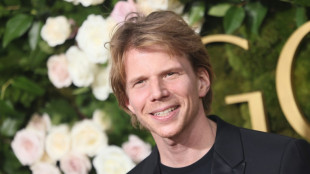 Taut Munich Olympics thriller explores media and terror
Taut Munich Olympics thriller explores media and terror
-
Musk says critics need 'better dirty tricks' after salute row

-
 'Sucks always' as error-strewn Paul laments missed Melbourne chances
'Sucks always' as error-strewn Paul laments missed Melbourne chances
-
Rain-triggered landslide kills 16 in Indonesia

-
 Zverev primed for 'very intense' Australian Open semi-final
Zverev primed for 'very intense' Australian Open semi-final
-
Pharrell pursues Paris landmark takeovers with Louvre show
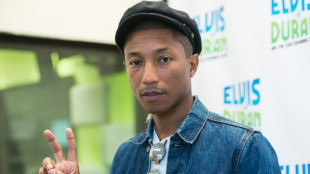
-
 EV sales slip in Europe in 2024 in overall stable car market
EV sales slip in Europe in 2024 in overall stable car market
-
Afghan Taliban government announces prisoner swap with US

-
 Stuttering PSG face moment of truth in Champions League
Stuttering PSG face moment of truth in Champions League
-
Fire at Turkey ski resort hotel kills 10, injures 32

-
 Israel-Hamas truce holding though Trump doubts it will last
Israel-Hamas truce holding though Trump doubts it will last
-
Trump takes US reins with flurry of executive orders

-
 Zverev beats Paul and a feather to reach Melbourne semis
Zverev beats Paul and a feather to reach Melbourne semis
-
Celtics crush Warriors, Cavs cruise past Suns

-
 South Korea's suspended president attends impeachment hearing
South Korea's suspended president attends impeachment hearing
-
Badosa almost quit tennis last year, now she's in Australian Open semi

-
 Trump 'not confident' Gaza deal will hold
Trump 'not confident' Gaza deal will hold
-
Ohio State holds off Notre Dame to clinch US college football crown

-
 Gauff 'not completely crushed' by Melbourne quarter-final loss
Gauff 'not completely crushed' by Melbourne quarter-final loss
-
'Too hard': Vietnam's factory workers return to country life

-
 China, EU, Ukraine leaders take Davos stage under Trump shadow
China, EU, Ukraine leaders take Davos stage under Trump shadow
-
Love and rights: Thailand's same-sex marriage milestone

-
 Gauff stunned as Djokovic, Alcaraz square up in Melbourne blockbuster
Gauff stunned as Djokovic, Alcaraz square up in Melbourne blockbuster
-
Trump 2.0 boosts interest in Davos: World Economic Forum chief

-
 EU's legal weapon facing the heat from US big tech
EU's legal weapon facing the heat from US big tech
-
6.0-magnitude earthquake shakes Taiwan

-
 Trump vows to take Panama Canal, urges Putin to make Ukraine deal
Trump vows to take Panama Canal, urges Putin to make Ukraine deal
-
Emotional Badosa stuns Gauff to reach Australian Open semi-finals

-
 Trump's climate retreat shines light on green leaders
Trump's climate retreat shines light on green leaders
-
S.Korea's suspended president to attend impeachment hearing

-
 Trump signs order to pull US from WHO, citing funding disparities
Trump signs order to pull US from WHO, citing funding disparities
-
Trump grants pardons to 1,500 US Capitol rioters

-
 Asian markets swing as Trump revives tariff fears on taking office
Asian markets swing as Trump revives tariff fears on taking office
-
Facing Trump and Musk, EU lawmakers seek sure footing

-
 Trump unleashes first day blitz with promise of new 'golden age'
Trump unleashes first day blitz with promise of new 'golden age'
-
Starry Sundance fest moves ahead in wake of LA fires
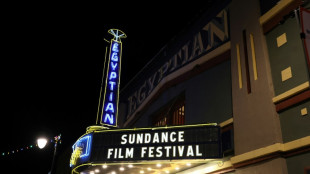
-
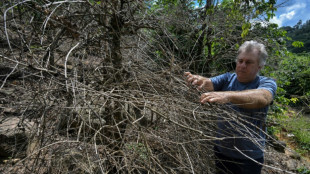 Brazil drought lights a fire under global coffee prices
Brazil drought lights a fire under global coffee prices
-
Trump's climate retreat shines light on other green leaders

-
 Trump declares national emergency, troop deployments at Mexico border
Trump declares national emergency, troop deployments at Mexico border
-
Revitalised Man City confident for PSG 'final': Guardiola

-
 Conceicao demands more hunger as AC Milan eye Champions League top eight
Conceicao demands more hunger as AC Milan eye Champions League top eight
-
Mbappe dispels doubts before crucial Real Madrid Champions League clash

-
 The global forces sending coffee prices skyward
The global forces sending coffee prices skyward
-
Trump leaves Paris climate agreement, doubles down on fossil fuels
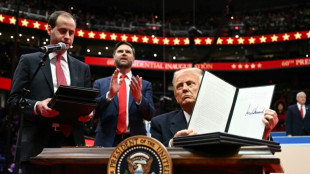
-
 Trump decrees end of diversity programs, LGBTQ protections
Trump decrees end of diversity programs, LGBTQ protections
-
Trump says could impose 25% tariffs on Canada, Mexico on Feb 1


Vladimir Putin's long obsession with Ukraine
Russian President Vladimir Putin, who launched an invasion of Ukraine on Thursday, has long been obsessed with returning the country to Moscow's fold, in the name of Russia's greatness.
For many Russians of his generation, who were raised on Soviet propaganda, the USSR disintegrating and its spheres of influences vanishing remains an open wound.
For Putin, a KGB officer based in East Germany at the time the Soviet Union was gradually collapsing -- between 1989 and 1991 -- this was a personal defeat.
The Russian leader has said many times that he suffered the same misery as his compatriots when the Soviet empire crumbled, recently claiming he was forced to drive a taxi to make ends meet when he returned to his homeland.
For many Russians, the years after the Soviet collapse were marked by humiliation and poverty -- a stark contrast to the West's triumphalism and prosperity at the time.
Putin has claimed that the end of the Soviet Union was the "greatest geopolitical catastrophe of the 20th century" -- despite Russia living through two world wars.
Putin's rhetoric became more extreme in recent weeks, as between 150,000 and 200,000 Russian troops massed along the borders of Ukraine, prompting a broad diplomatic effort aimed at preventing an invasion.
In a speech on February 21, Putin baselessly accused Ukraine of seeking a nuclear weapon and called its government a "neo-Nazi" regime that bore responsibility for any further bloodshed.
- 'Crossed over to the dark side' -
He recognised the independence of two separatist regions and authorised sending "peacekeepers" into the rebel provinces.
Tatiana Stanovaya, who runs the R.Politik analytical centre, predicted grim times ahead, saying that Putin had "crossed over to the dark side of history."
On Thursday, Putin declared "I have made the decision of a military operation" in Ukraine, during a television address, and explosions were soon heard across the country, triggering swift international condemnation.
He justified the operation by accusing the Kyiv government of overseeing a "genocide" in the east of the country.
Observers say Putin's sense for revenge over Ukraine deepened when NATO and the EU expanded into countries once dominated by Moscow.
For the long-time Russian leader, any attempts towards bringing Ukraine into Western alliances have represented a red line.
Putin has made it his historical mission to stop this advance in what he believes should be Russia's region of influence.
In his vision, "if the authorities do not solve this security problem now, then Ukraine will be in NATO in 10-15 years", according to analyst Alexei Makarkin.
When a pro-Western revolution took place in Kyiv in 2014, Moscow annexed Ukraine's Crimean peninsula and pro-Russian separatists took up arms in the east of the country, in a conflict that cost more than 14,000 lives.
- Some 'only understand force' -
For the Kremlin chief, Russia must respond by being strong, menacing even. Giving in is not in the nature of the former KGB agent and judoka.
Born into a working-class Saint Petersburg family, Putin said in 2015 that "if a fight is inevitable, you must strike first."
One of his teachers, Vera Gurevich, has said that when a 14-year-old Putin broke one of his classmate's leg, the future president said that some "only understand force."
He has repeatedly called into question the idea of distinct Ukrainian identity and statehood.
Putin claims that two Ukrainian revolutions -- in 2005 and 2014 -- that drove out pro-Russia elites were the result of a Western plot.
As far back as 2008, according to Russian and US media, Putin told his then US counterpart George W. Bush that "Ukraine is not even a country."
During his end-of-year press conference in December, Putin again raised eyebrows by saying Ukraine was "created" by Vladimir Lenin, the founder of the Soviet Union.
Months earlier, in a long article called "On the historical unity of Russians and Ukrainians," he said that Kyiv's decisions are driven by a Western "anti-Russia" plot.
Analyst Stanovaya said that Putin has always believed that the Ukrainian people are themselves pro-Russians that have been "the subject of manipulation".
She said that in the Kremlin's "understanding, war would not be an attack on Ukraine, but a liberation of the Ukrainian people from a foreign occupier."
The Kremlin has for years repeated its line that the West has taken advantage of Russia's post-Soviet weakness to camp close by, betraying vague promises made in the twilight of the USSR.
What drives Putin, said Makarkin, "is the desire to stop time."
W.Moreno--AT
